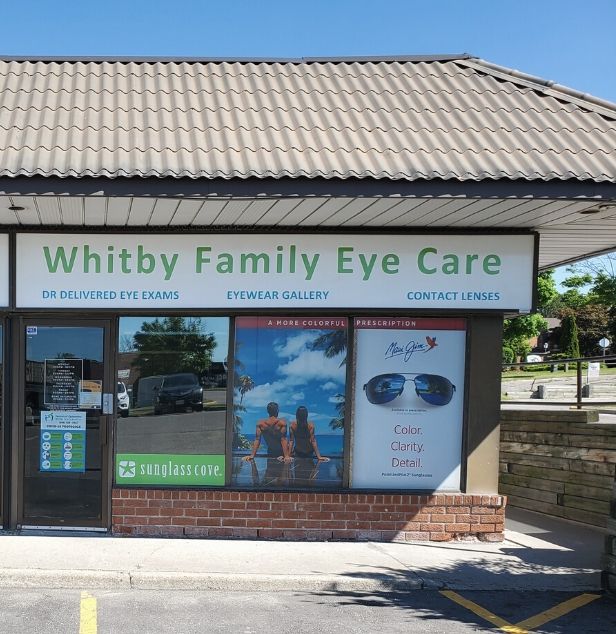Sunlight is one of the biggest sources of vitamin D, and who doesn’t love a day spent soaking up those beautiful rays? However, prolonged exposure to the sun can be harmful to our skin and eyes.
Do you notice your eyes being sensitive to sunlight? Blue and light-coloured eyes have less melanin than brown eyes, meaning they’re more sensitive to the sun and are more susceptible to developing UV-related eye damage. But even those with darker eyes should take precautions and protect their eyes from the sun’s harmful rays with sunglasses that include UV protection. But just because brown eyes in the sunlight may be less sensitive doesn’t mean they can’t still sustain damage from the sun.
Exposure to UV radiation can lead to serious eye conditions.
What Is the Danger to Our Eyes from the Sun?
The sun’s rays consist of 2 types of UV radiation that can affect us: UVA and UVB.
UVA is present at all times and penetrates deep into your skin. It’s responsible for immediate tanning and premature skin aging and plays a role in developing certain skin cancers. UVB varies in intensity depending on the time of day and season and is responsible for delayed tanning, sunburns and most skin cancers. The ozone layer absorbs most UVB radiation; only 5% reaches us.
Our eyes are just as vulnerable to these rays as our skin. Prolonged exposure to UV radiation can lead to various eye problems, including cataracts, eyelid cancer, age-related macular degeneration (AMD), and growths on the eye.
Are Blue Eyes in The Sun More Sensitive?
Yes, blue eyes can be more sensitive to sunlight, primarily because blue eyes contain less melanin.
Melanin is a natural substance in the body responsible for colour (pigmentation) in the skin, hair, and eyes, serving an essential role in protecting our skin and eyes from the effects of UV radiation. It acts as a natural sunscreen by absorbing and dispersing UV rays, helping prevent sunburn and other sun-related damage.
Since melanin helps protect our skin from UV radiation, it also affects how our eyes respond to sunlight. Those with lighter eye colours, such as blue eyes, may have a higher sensitivity to bright light and may experience more discomfort in sunny conditions.
This light sensitivity, also known as photophobia, is an intolerance to bright light, including sunlight, fluorescent light, and blue light from screens. This sensitivity can be a big reason why people seek eye care advice.

How Can We Protect Our Eyes from the Sun?
Sunglasses are more than a cosmetic summertime accessory— they’re also a great way to protect your eyes from the sun’s UV rays in any season. Whether you’re hitting the beach, out for a winter walk, or spending hours driving on vacation, sunglasses can help block harmful UVA and UVB rays.
It’s still important to be mindful of the time of day and location when you’re outside, even if you have the best eyewear. The sun’s rays are typically strongest between 11 AM and 3 PM, so try to avoid prolonged exposure during these hours.
If you’re near water, snow, or sand, the sun’s rays can be even stronger due to the reflection off the surface. Be aware of your surroundings and take extra precautions if needed.
100% UV Protection
Wearing the right type of eyewear is essential for protecting your eyes from UV radiation. Not all sunglasses are created equal. Look for sunglasses with 100% UV protection lenses, which means they filter out both UVA and UVB radiation.
Polarized Lenses
Polarized lenses reduce glare and improve visibility in bright light. However, polarization alone won’t protect your eyes against UV rays. So, while polarized sunglasses may be great if you spend a lot of time by the water or in the snow, make sure they also provide UV protection.
Contact Lenses
With technological advancements, we now have contact lenses that incorporate UV protection directly in the lens. While they provide an additional layer of protection, they only shield the surface of the eye covered by the lens. These specialized contact lenses aren’t a substitute for wearing UV-blocking sunglasses and hats, which are essential for shielding the sensitive skin around your eyes and the unprotected areas of your eyes from the sun’s rays.
What If You Already Wear Prescription Glasses?
If you already wear prescription glasses, consider adding a UV protection coating. This way, you won’t have to switch between your regular glasses and sunglasses when you go outside.
Another great alternative is getting prescription sunglasses. With prescription shades, you can enjoy the benefits of UV protection, anti-glare, or polarization sunglasses offer. Stay protected and stylish at the same time!
Discuss Your Sunglasses Options with Us
It’s easy to take preventive measures like wearing a wide-brim hat or choosing your time in the sun wisely. But sunglasses are essential to protecting your eyes in the sun no matter the time of year.
Not all sunglasses are the same. Just because sunglasses make it easier to see while you’re outside doesn’t mean they protect your eyes and the surrounding skin from UV radiation.Our team is happy to help you find fashionable, comfortable sunglasses that provide adequate protection. Come on by Whitby Family Eye Care today and explore our selection.







